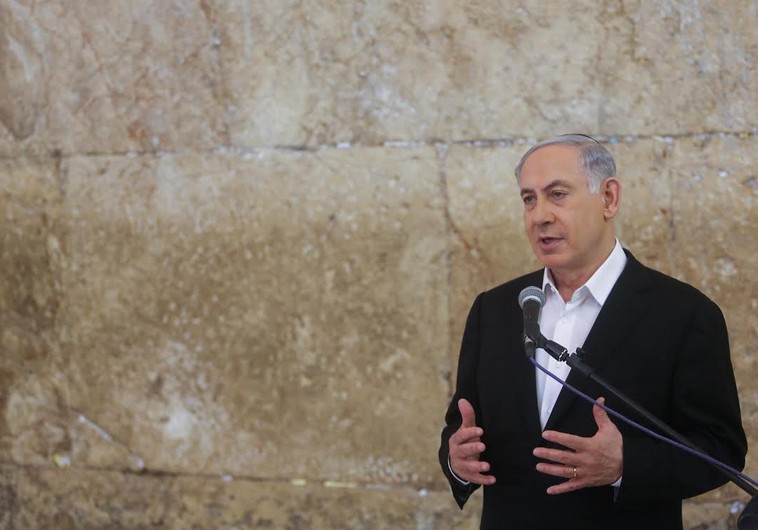
Dealing with a Bad Iranian Nuclear Agreement
James F. Jeffrey/Washington Institute/ March 4, 2015
Whether by advocating careful congressional action or simply waiting until a new administration is in place, those who question the president’s apparent Iran strategy will have several means of correcting course once an agreement is signed. The Obama administration and the rest of the P5+1 will likely agree soon on a limited-duration agreement with Iran that aims to provide around one year of warning time before any breakout to nuclear weapons capability — a deal that Israel and many other regional states would view as a victory for the Islamic Republic and an eventual danger to all. In that case, the administration would likely face a multifaceted crisis with Israel and other allies, with Congress, and with an Iran whose intentions remain opaque. Despite the inevitable rhetorical fireworks on all sides, however, the situation is too serious for partisanship — it requires serious thought about what to do and not do. Two components require particular attention: the consequences of a nuclear agreement whose details have been sufficiently leaked to provide considerable clarity, and the consequences of possible White House and Iranian interest in a better bilateral relationship, which the administration may see as a potential stabilizer for the region even if no one else does.
PACTA SUNT SERVANDA
If the administration signs an agreement with Iran, Congress or regional allies can do little to force it to back down. Nor should anyone try. The United States depends on a modicum of international law and smooth relations with key international players to run the global security system that protects us all. Once any administration enters into an international agreement — particularly with important states such as P5+1 partners Britain, China, France, Russia, and Germany — there are compelling arguments to stick with it absent breach of faith.
While Congress must be consulted on any agreement, the administration and the P5+1 states can lift UN sanctions against Iran on their own authority, while the president can invoke the 2012 National Defense Authorization Act (NDAA) to waive or suspend the most important U.S. sanctions — those penalizing third-country purchases of Iranian oil — on national security grounds. Sanctions relief will apparently be step-by-step in the proposed deal, so a presidential waiver rather than final congressional cancellation would presumably be sufficient for Iran at first. Other U.S. sanctions, mainly involving bilateral trade, require congressional approval to lift and are unlikely to be suspended anytime soon, since they were imposed due to Iran’s support of terrorism as much as its nuclear activities. Yet these measures are not particularly damaging to Iran, so the regime may well accept their being deferred. In short, active congressional support would not be required to sign and implement a nuclear agreement, at least during the Obama administration.
Of course Congress could take action to torpedo an agreement, either with new sanctions or by stripping the president of waiver authority. That would be a terrible mistake, however. Although the president could veto these actions or, if overruled, fudge compliance, such a scenario would raise doubts about whether the agreement would survive under the next president. Even if said impasse were resolved, it would devastate the foreign policy authority essential for every president. Furthermore, if Congress seeks to hurt Iran with new sanctions, it would have to target the regime’s third-country trade and finances. The willingness of those countries to support extraterritorial U.S. law was stretched with the NDAA, and they would almost certainly resist new sanctions when Iran is seen as complying.
CONGRESSIONAL OPTIONS
What then can the United States do to generate faith in such an agreement, both at home and abroad? In a recent Washington Post article, Dennis Ross laid out sensible steps to enhance confidence. The problem is that this administration may not follow them. But Congress can take steps of its own which, given the not-too-distant U.S. presidential election, will be taken seriously.
First, it can review the agreement once reached, and it can keep suspended/waived sanctions in place until it is satisfied with the terms or Iran’s compliance. Second, it can closely study the question of military action against Iran. Although keeping all options on the table is the White House’s stated policy, it has little credibility because the administration constantly describes any U.S. military action as “war,” deliberately conjuring up fears of a new Iraq-like quagmire. Obviously any attack on Iran would be more dangerous today than the last conflict in 1987-1988. But it almost certainly would not involve U.S. ground troops, the prime generator of casualties, costs, and risks. And while the administration tends to emphasize Iran’s formidable asymmetrical capabilities in any conflict scenario, including terrorism and missile attacks on Israel, this focus ignores America’s significant “escalation dominance” and consequent ability to retaliate against the very sinews of Iran’s command and infrastructure. Also open to question is the argument that attacking Iran’s nuclear facilities is all but useless because the regime would supposedly rebuild quickly and then be even more motivated to achieve nuclear weapons status — during the Saddam Hussein era, for example, the United States and Israel repeatedly struck Iraq until he eventually gave up his quest for weapons of mass destruction. The result of all this is that the U.S. military “stick” has thus far been deterring the United States instead of Iran. Third, as Dennis Ross suggests, Congress could provide advance authorization for the administration to use force if Iran races to a weapons capability. This would enhance U.S. credibility and give Tehran a clear reason for sticking to the agreement.
THE CHINA ARGUMENT
A great deal of circumstantial evidence has emerged indicating that the administration hopes to use a nuclear agreement as leverage for “flipping” Iran into a “status quo” state or even a partner in promoting stability. Unlike with a nuclear agreement, there is no stated administration commitment here, and the just-released National Security Strategy does not address the possibility. But the administration has been hinting strongly at this intent, as former U.S. official Michael Doran described in a February 2 article in Mosaic.
Such an approach would of course dramatically shift the regional security architecture: for the better if Iran supports international order, and dramatically for the worse if an unleashed Iran pursues hegemony without a U.S. counter. Smart betting should be on the latter. In his 2012 book Iranian Nuclear Crisis, Hossein Mousavian — a moderate Iranian close to President Hassan Rouhani — argued that any detente with Washington should include U.S. withdrawal from Afghanistan, Iraq, and the Persian Gulf, an end to U.S. weapons deliveries to Gulf states, “weakening” of Israel, and a regional security arrangement tantamount to Iranian dominance. Such views are hardly surprising given that Tehran is currently pursuing this very approach around the region.
The recent history of other would-be regional hegemons tells the same story, from Putin’s Russia to Saddam’s Iraq to Milosevic’s Serbia. Even China, the supposed paragon of “flipping” success, unfortunately falls into this category. President Nixon’s gambit to shore up America and China against a resurgent Soviet Union was tactically brilliant, but from a strategic standpoint the results are sobering — China has not been won over to a liberal, status quo role, a fact that becomes ever more apparent as its power grows.
Ironically, the arguments of many experts pushing for detente with Iran sound similar to those of the “China Hands” that ring hollow today. According to this line of thinking, if Iran is China, then the “Islamic States”/ISIS is the Soviet Union that Washington hopes to partner against. This is absurd — ISIS is not a threat comparable to the USSR, and apart from encouraging the Iraqi government, Iran cannot make any contribution to the fight against the jihadist group. For one thing, the regime’s theological principles resemble those of the terrorists it would fight, as Henry Kissinger noted in his 2014 book World Order. Second, any Iranian bid to take on Sunni militants in their own lands would split the anti-ISIS coalition and likely spark a Sunni-Shiite regional conflagration.
What then to do about this apparent administration desire for condominium with Iran? If this is not the president’s intent, he can put concerns to rest by more forceful containment of Iran regionally — which would also strengthen support for a nuclear agreement. Fortunately, even if condominium with Tehran is his intent, he will have little opportunity to carry it out in the short time he has left in office. Unlike outreach to China, there is little popular or political enthusiasm for such an arrangement with Iran, and the administration has not even begun to convince the public of Tehran’s alleged potential as a stabilizer. Even usually reliable Obama supporters have evinced skepticism on this front, such as Eugene Robinson in a February 26 Washington Post op-ed.
If the president is somehow right about Iran, then the next administration will presumably recognize this and reinforce his efforts. If, however, Iran continues its destabilizing ways, the next administration will still have the tools to contain it once again, despite damaged U.S. credibility. The latter approach might not be the most heroic route for opponents of the administration’s policy, but it has the benefit of relying on democracy and the “strategic patience” President Obama often extols to rectify grievous errors.
**James Jeffrey is the Philip Solondz Distinguished Visiting Fellow at The Washington Institute.















